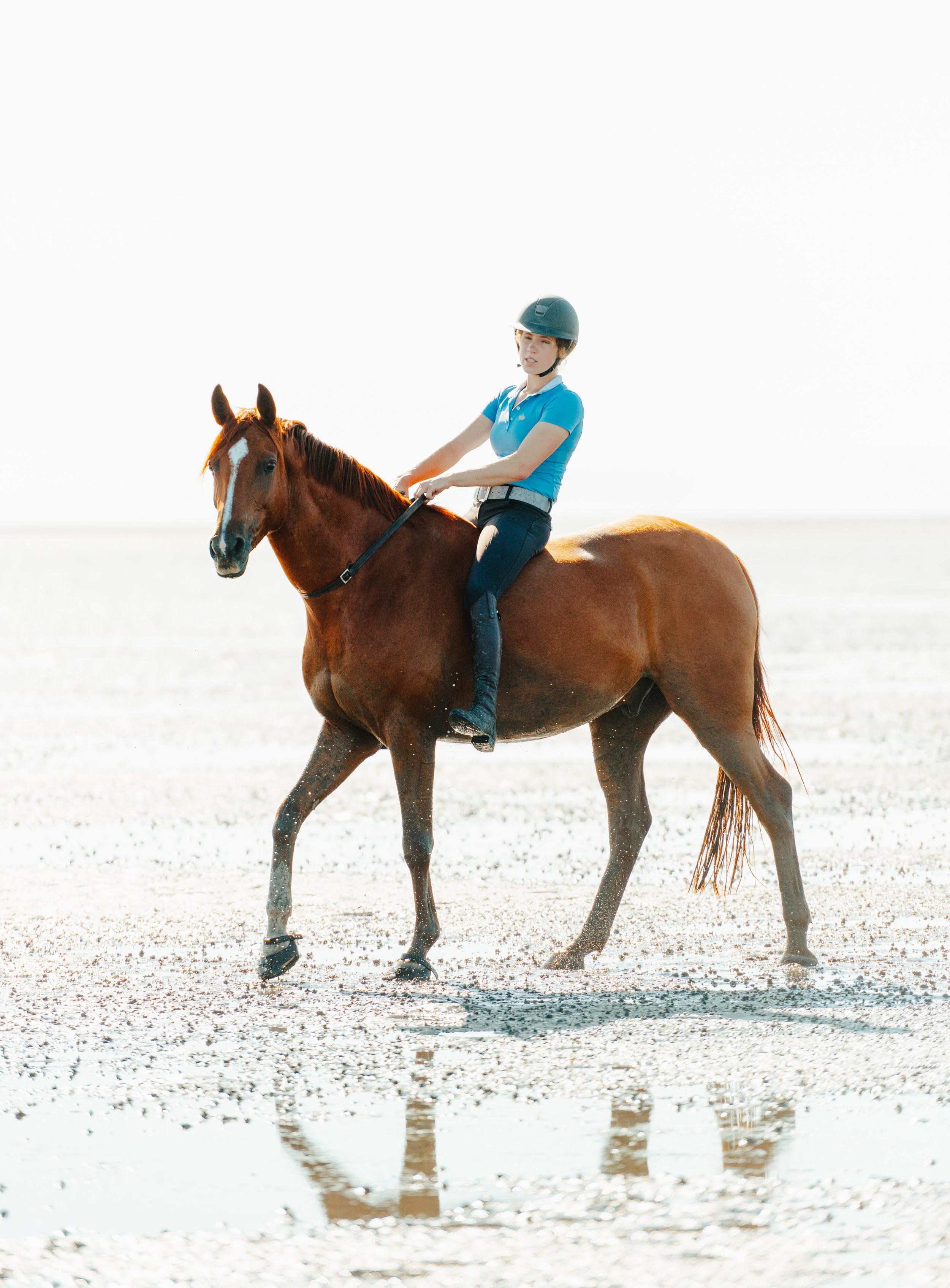The Horse World and How it Untrains Riders’ Empathy
Riders are trained with high pressure negative reinforcement and positive punishment, too.
I think this is why so many people respond with anger when they see longstanding traditional practices meeting rightful critique as we learn more about how to care for and train these beautiful animals in the most ethical way possible.
When you first start riding, you usually do not go into it wanting to hit or yell at horses. The first time your trainer tells you to ”spank” your horse with the whip or yells to “KICK HIM HARDER” you likely felt discomfort towards it or maybe resisted and didn’t want to.
Then your trainer will consistently apply the aversive pressure of yelling things like:
“GET AFTER HIM!”
“YOU ARE TEACHING MY HORSES BAD HABITS”
“YOU CANT LET HIM GET AWAY WITH THIS”
“He’s a horse, he’ll barely feel it!”
Then, when you finally give in, usually pink cheeked and embarrassed from the scene conversations like this can cause in public, you’re rewarded:
“Great riding! Way to go! Way to show him who’s boss!”
Compliments from someone you view as much more experienced than you and whose approval you crave, reinforcing the idea that getting after your horse and viewing behaviours as objectively “good” or “bad” is a good thing.
Positive punishment can be in by way of verbal digs from your trainer or if you don’t listen, then telling you to get off their horse or embarrassing you in front of peers.
It may even escalate to them forcibly doing the things you don’t want to or are unable to do.
Through this training, we are primed and condition to respond in a reactionary manner and not bat an eye over disciplining behaviours and escalating pressure to points where it causes horses high stress.
We are taught just to listen to authority and that the person you pay for lessons and training is inherently righteous, whether they can actually substantiate the process of their training and how it actually works or not.
We are taught not to question things because questions that our trainers don’t know how to answer are often met with anger.
We are taught that being a “good” rider involved being bossy, harsh and reprimanding our horses for displaying behaviours we don’t like, whether the behaviour is natural for the horse or not.
We are taught that being gritty and riding stressed out horses who are trying to unload us is something to be proud of.
That the bigger bit you ride your horse in, the more experienced your hands are and the more difficult your horse is. Look at how tough the horse I ride is and look at how I can boss him around and force him to work through his stress!
Our very value system is rooted in our ability to force a large, benevolent creature into doing our bidding rather than our ability to motivate our horses to do things we ask of them through partnership and mutual benefit.
Our value system is in our ability to ride through indicators of stress in training and signs that horse is struggling and do so without batting an eye and feeling for what our horse might be going through emotionally.
We are taught to view their stress as an inconvenience to us and thereby label stress behaviours as inherently bad and react to our horses as if they’re intentionally trying to defy us.
All if this is taught to us in a way that is so sneaky and insidious that so many riders don’t actually realize what has happened to them until they’ve lost many years to handling horses in a way that is largely ineffective and more stressful for everyone involved.
The goodness of a rider is in their ability to help stressed horses relax and become comfortable in their environments.
The goodness of a rider is in their understanding of the different timelines horses need and not trying to stuff horses in a one sized all approach.
The goodness of a rider is in their desire to use the softest equipment possible and not resorting to quick fixes like harsher bits or training gadgets likely to cause stress and pain.
The goodness of a rider is rooted in their empathy for their horse and their desire to do what’s best for the horse even if they’re mocked by other riders for us.
Many of us have had that goodness eroded away as we’ve gradually been pushed to be hardened against our will. It happens slowly enough that you don’t generally realize it. It’s a gradual conditioning in your early years as horse person.
Taking back that childlike enjoyment and appreciation of horses allowed me to develop more empathy and understanding in training.
Now, instead of taking pride in riding a stressed horse through antics dangerous to the both of us, I feel accomplishment when we avoid those antics altogether by not sending the horse over threshold when it’s entirety avoidable most of the time.
If horses are willing to do as much as they do for us when we demand it, take it forcefully and don’t stop often enough to consider their feelings, imagine what they would do if we gave them the same empathy, kindness patience and understanding they as animals so freely give us, even when we wrong them and misunderstand them on a rampant basis.
The room for improvement is extraordinary and I, for one, can’t wait to see what’s on the other side of developing more empathy across the horse world.
Taking our relationships with horses from dictatorship to partnership opens the door for so much goodness.
➖➖➖➖➖➖➖➖➖➖➖➖➖➖➖➖
Check out my Patreon for behind the scenes, training help, tutorials and more: http://Patreon.com/sdequus
Check out my product line of anatomical bridles and more: http://amoreequestrian.ca/pages/milestone
See my website for free resources, studies and more info on equine behaviour and training: http://milestoneequestrian.ca/resources

